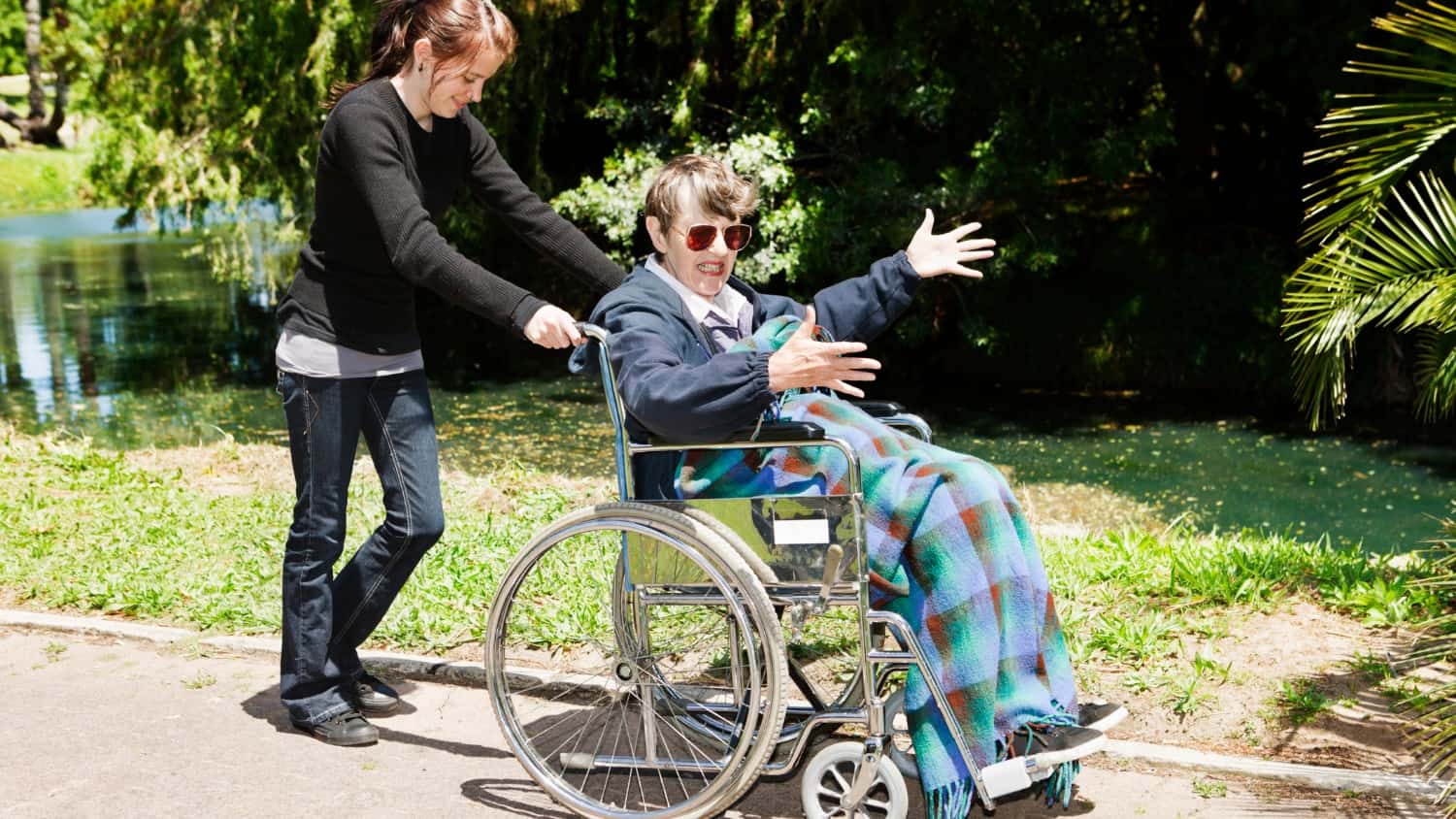
My Aging Parent Is a Control Freak, How Can I Take Care of Them?
Caring for an aging parent is a responsibility that is commonly taken by their adult children but is accompanied by many compromises. As a caregiver, you may have already sacrificed your personal, work, and social life in order to attend to the daily care needs of your parent.
When your aging parent meets you with resistance and pushes back on every caretaking decision you make, it may add on even more stress to your changed lifestyle. Whether this controlling behavior is new or pre-existing, it may be an indication that something larger is looming at hand.
For example, mom would become unreasonably angry and frustrated if trying to change the layout of her home to decrease her chances of falling. Dad may become aggressive when you lend a helping hand around his house post his stroke experience. If this sounds familiar, you may have already coined your parent as a ‘control freak’.
Controlling behaviors are often the product of underlying anxieties. It’s important to understand what these underlying anxieties are in your aging parents in order to best navigate around their frustrated, aggressive, and resistant behaviors.
What Is Psychological Control?
‘Control freak’ is recognized as a trait among personality disorders within the field of psychology. However, we will refer to the formal term for control freak as ‘psychological control’ or ‘psychologically controlling’.
‘Psychological control’ refers to a method used to manipulate another person’s thoughts, feelings, and attachment.
It is exhausting to be a caregiver when your controlling parent will not budge on anything. You can easily become overwhelmed. Your objective is to look out for their best interests, so feelings of guilt for not following their wishes is common, no matter how unreasonable or strict their requests are.
Doubting yourself when you don’t meet your controlling parent’s expectations is a path you should avoid. Don’t let their manipulation get the better of you.
Communication is not a strong quality among controlling parents. Their inability to communicate effectively causes them to lash out with hostility, verbal and physical aggression, and unreasonable sensitivities.
It is helpful and necessary to understand the common traits and objectives among control freaks. Usually, these include:
- Being overly involved in their own personal needs.
- Lack of appropriate sense of empathy for their children’s perspective and goals.
- Discouraging the autonomous development and personal identity of their children.
- Manipulating and exploiting the parent-child bond through guilt, disappointment, and shame.
- Excessive personal control.
- Being unresponsive to their children’s emotional needs.
- Primary concerns are their own needs and feelings rather than those of the child.
Aging is not an easy process for anyone. Older adults naturally lose more control over their independence as they encounter medical complications, loss of memory, or new forms of physical disability.
It’s normal for an aging parent to become frustrated over their progressive decline in autonomy. It’s not normal, however, for an aging parent to become manipulative, excessively controlling, and lacking in empathy towards their children.
Having Power and Psychological Control
Control freaks need to have the sense of ‘being in control’ within a relationship. If they feel they are starting to lose power over their adult children’s behavior, they see this as a threat and become anxious.
What’s the usual result of this?
When a controlling parent feels they are losing their grip on power, they are at the greatest risk for being coercive and manipulative. As a result, they may withdraw their love for you, guilt/shame you, or act out in unreasonable emotional behavior.
The end goal for controlling parents during their ‘low power’ phase is to influence your behavior and ultimately get their way.
What are some things to look out for?
Becoming Submissive
Many adult children simply conform to the parent’s views or rules in order to maintain the relationship. But this usually leads to the child feeling depression, becoming helpless under their parent’s will, and developing more mental health problems.
Chilling Effect
Adult children who feel powerless or fear aggression from their parents tend to withhold their grievances and avoid conflict. Overtime, children will continue accommodating their controlling parent’s wishes to avoid confrontation.
Need for Acceptance
When a controlling parent acts out, it may actually be a cry for help. A summary of research studies has shown that hurt feelings were associated with anger and verbal/physical aggression. Controlling parents may blame you and other loved ones around them for their difficulties.
Taking no recognition or responsibility for their previous behaviors leading to their current situation is the telltale sign of self-protection. Controlling parents feel the need to self-protect themselves because they need acceptance from their children. When a parent feels less important, less close, and less valuable, they are actually expressing that they are hurt.
Controlling parents have different levels of sensitivity when it comes to feeling hurt. In fact, a focus group in a research study showed that parents that were sensitive to feeling hurt by their children actually used more forms of psychological control on their children. Mothers tend to have increased emotional outbreaks while fathers tend to become withdrawn.
What are the types of assumptions that controlling parents who are sensitive to being hurt make when interacting with people?
- They expect to be hurt upon the initial interaction with their children.
- Often, they have biased opinions and immediately interpret interactions with their children as rejecting and devaluing.
- They are prone to hostile feelings and have defensive aggressive responses.
- They overreact with negative emotions.
Perfectionism and Psychological Control
Perfectionism goes hand in hand with control freaks. Have you suspected your controlling parent of being a perfectionist in the past? More than likely. Two types of perfectionism exist – adaptive and maladaptive.
Adaptive Perfectionism
When a person’s character resembles adaptive perfectionism, they set and endorse high personal standards that are unrelated to negative outcomes.
Maladaptive Perfectionism
Negative self-evaluations that arise from rigid and inflexible adherence to personal standards defines maladaptive perfectionists. Such people commonly have depression and anxiety as a result of their stringent personal rules.
Research has demonstrated a strong link between maladaptive perfectionism and psychologically controlling parents. In more detail, parents with this behavior:
- Have overly critical self-evaluations and high standards to which they hold themselves and others.
- Project their own high standards onto their children.
- Disapprove of children who are unable to meet those high standards.
- React in a critical or rejecting manner if their children are not able to meet the projected standards.
- Use intrusive, critical, and authoritarian methods of parenting.
- Use more psychologically controlling methods compared to parents that are not perfectionists.
- Lack empathy to be attuned to their children’s needs.
- Extend any wishes and norms that they themselves are unable to achieve onto their children.
Being a caregiver for a perfectionist isn’t an impossible task. In fact, it can become routine since you’ll know exactly how your parent prefers things to be done. When a parent is a maladaptive perfectionist, they may meet you with unreasonable anger if one thing isn’t done exactly to their wishes. Unproductive and exhausting disputes often follow.
The underlying issue for maladaptive perfectionism in controlling parents revolves around anxiety. When things don’t go as planned among controlling parents, their anxiety levels grow. Think of an implosion.
Rather than communicating their needs, controlling parents quietly judge and push their stringent rules onto you as a caregiver. As their anxieties reach a limit, they will inevitably resort to psychologically controlling methods.
A controlling parent’s anxiety levels fall back down once they have their way. This is a repeated cycle that occurs commonly among controlling parents and their children.
How to Deal with Controlling Parents?
What are the solutions?
Journal Your Controlling Parent’s Behaviors
Investigative work needs to be done. Take some time to reflect on past behaviors that you’ve come across with your controlling parent. Write all of these down and categorize them in themes.
Give yourself a couple of weeks and up to one month to journal more behaviors that you can add on to the list. Using other family members that are also assisting in the care of your controlling parent may help generate more ideas and also help with your own biases.
Sample journal entry:
My mother will not change her diet despite recommendations from her doctors. She’s supposed to be on a low sodium diet and a diabetic diet but she continues to eat whatever she wants. Every time I tell her that she needs to change her diet, she ignores me, breaks down and cries, or begins guilting me that she has raised me her whole life and this is how I repay her.
Themes: Resistance to change, unreasonable and erratic emotional responses, and guilt.
Develop Solutions to Themes
Once you’ve identified common themes and controlling behaviors from your parent, your next step is to develop one or more solutions for each scenario.
Again, going over these solutions with other family members in the care of your controlling parent is useful. It helps to rehearse your solutions and responses out loud. Rehearsing out loud allows you to feel more confident and prepared when it’s time to have a discussion with your parent.
Solutions should include:
- Direct evidence of their past behaviors.
- Acknowledging and recognizing the purpose of their behaviors.
- Letting the parent know that you’re on their side and looking out for their best interests.
- Provide objective evidence of what may happen if they continue with their controlling behaviors and share your personal feelings about the matter.
Presenting Solutions
When you personally feel ready to provide your solutions to your controlling parent, it should be at a time when your parent is most calm. You don’t want to bombard them with immediate attacks as it may further cause defensiveness. The mood should feel conversational rather than confrontational.
Example: Having a cup of coffee in the morning or doing a light activity together that you both enjoy.
“Hey mom, I wanted to talk about something that’s been on my mind for a little while. I’ve put a lot of thought into it. Before I tell you, I want to let you know that I care about you and your health. I know each time I bring this up, I feel like I get some push back from you, and I want to know why. How do you feel when I bring up this topic? What about it feels uncomfortable?
“It concerns your diet and the recommendation from the doctor. I get scared each time you don’t follow the recommendations from your doctor. It scares me that you’ll have another readmission to the hospital again. The last time it happened, it really terrified me, and I didn’t know what to do.”
Take a Stand and Draw Boundaries
The truth is, most controlling parents will not respond to your solutions as planned. Most will resort immediately to psychologically controlling behaviors instead.
Controlling parents have been conditioned to respond with manipulative and coercive behaviors from the beginning or have actually learned from their parents.
Rather than becoming mentally abused by your parents, boundaries of your caregiving assistance need to be drawn and made aware to your controlling parent. Professional help may also be needed.
- Talk to your parent’s primary provider and voice your concerns to them. A referral can be made for a psych consult.
- If seeing a psychologist or psychiatrist is out of the question, a community social worker can also assist with developing solutions to assist in the care for your controlling parent. Controlling parents will often follow the recommendations from a healthcare professional and adhere to the plan.
- Referrals for home health occupational therapy, physical therapy, nursing, and social work are great resources if discharging from the hospital. If your parent’s insurance covers home health after their discharge, the home health professionals can assist you in dealing with your parent’s controlling behaviors.






